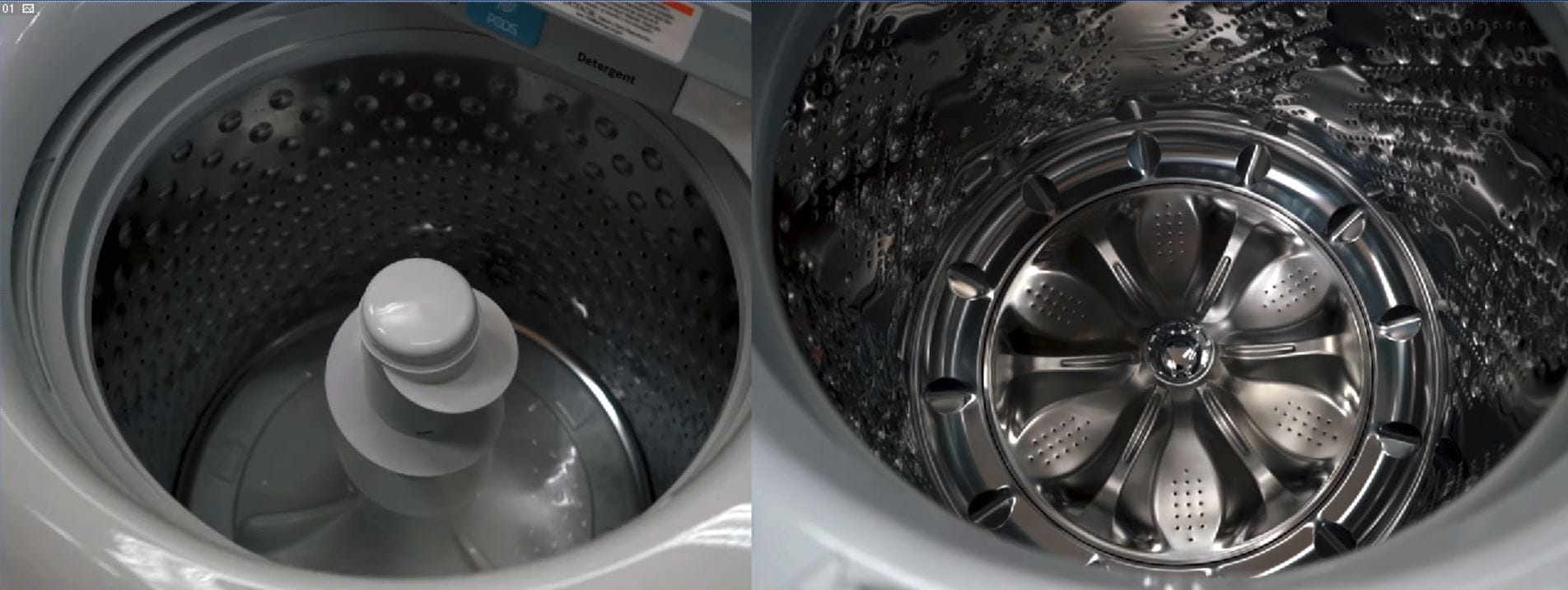

Articles
Which Washer Is Better Agitator Or Impeller
Modified: August 16, 2024
Discover the pros and cons of agitator and impeller washers in our insightful articles. Compare and choose the best washer for your needs.
(Many of the links in this article redirect to a specific reviewed product. Your purchase of these products through affiliate links helps to generate commission for Storables.com, at no extra cost. Learn more)
Introduction
Welcome to the world of washing machines, where technology has revolutionized the way we do laundry. Gone are the days of scrubbing clothes by hand; now, we have the convenience of automatic washers to do the hard work for us. But with so many options available, it can be overwhelming to choose the right one for your needs. One of the decisions you’ll need to make is whether to go for an agitator washer or an impeller washer.
Agitator washers and impeller washers are two popular types of top-loading washing machines. While both serve the same purpose of cleaning clothes, they have distinct differences in their design and functionality. Understanding these differences is crucial in determining which one is better suited for your laundry needs. In this article, we will delve into the world of agitator and impeller washers, discussing their pros and cons, cleaning performance, energy efficiency, water usage, capacity, noise level, durability, maintenance, and cost.
So, whether you’re looking to upgrade your existing washer or purchasing a new one for the first time, read on to discover the key factors to consider when choosing between an agitator washer and an impeller washer.
Key Takeaways:
- Agitator washers offer powerful cleaning for tough stains, shorter wash cycles, and a lower initial cost, but may be less energy-efficient and have a smaller capacity compared to impeller washers.
- Impeller washers provide gentle care for delicate fabrics, energy and water efficiency, and larger capacities, but may have longer wash cycles and a higher initial cost than agitator washers.
Read more: What Is Impeller Washer
Definition of Agitator and Impeller
Before we dive into the specifics of agitator and impeller washers, let’s first understand what each term means.
Explanation of Agitator Washers
An agitator washer is a type of top-loading washing machine that features a central spindle-like mechanism known as an agitator. The agitator is responsible for creating a swirling motion in the water, agitating the clothes and removing dirt and stains. It typically consists of a vertical post with fins or paddles that move back and forth during the wash cycle.
Agitator washers have been around for many years and are known for their robust cleaning performance. The agitating motion of the agitator provides a deep and thorough clean, making it suitable for heavily soiled clothes or stubborn stains. The vigorous movement ensures that the laundry detergent is properly distributed, resulting in cleaner and fresher clothes.
Explanation of Impeller Washers
On the other hand, an impeller washer is a newer innovation in the world of washing machines. Instead of using an agitator, impeller washers utilize a low-profile cone or disc-shaped component called an impeller to clean the clothes. Unlike agitator washers, impeller washers rely on a different mechanism to create movement and agitation.
The impeller’s design allows for a more gentle and efficient washing experience. As the impeller rotates, it creates a turbulent current in the water, which facilitates the movement of clothes and dislodges dirt and stains. This gentle yet effective approach is ideal for delicate fabrics and garments that require a softer touch.
Now that we have a clear understanding of what agitator and impeller washers are and how they work, let’s dive into the pros and cons of each type to help you make an informed decision.
Pros and Cons of Agitator Washers
Read more: What Is An Agitator Washer
Advantages of Agitator Washers
Agitator washers have been a popular choice for many years, and they come with several advantages that make them appealing to certain users:
- Powerful Cleaning Performance: One of the main advantages of agitator washers is their superior cleaning performance. The vigorous back-and-forth motion of the agitator helps to loosen and remove tough stains and dirt from clothes, making them ideal for heavily soiled items.
- Shorter Wash Cycles: Agitator washers typically have shorter wash cycles compared to impeller washers. This can be a significant advantage for those who are looking for quick and efficient laundry routines.
- Deep Water Level: Agitator washers often allow for a deeper water level during the wash cycle. This can be beneficial for individuals who prefer a more traditional washing experience or have large, bulky items that require ample water for effective cleaning.
- Lower Initial Cost: Generally, agitator washers tend to have a lower upfront cost compared to impeller washers. If budget is a major consideration, this can be a significant advantage.
Disadvantages of Agitator Washers
While agitator washers have their advantages, they also come with a few drawbacks that should be taken into account:
- Aggressive on Delicate Fabrics: The vigorous movement of the agitator can be harsh on delicate fabrics, leading to potential wear and tear or damage to the clothing. It is important to follow garment care instructions and use the appropriate washing settings to avoid any mishaps.
- Lower Energy Efficiency: Agitator washers tend to consume more energy compared to impeller washers. This is because the agitating motion requires more power to operate. If energy efficiency is a priority for you, an agitator washer may not be the most suitable choice.
- More Water Usage: Due to the deeper water level and the nature of the agitating motion, agitator washers often use more water during each cycle. This can contribute to higher water bills and have a negative impact on the environment.
- Limited Capacity: Agitator washers typically have a smaller capacity compared to impeller washers. This can be a drawback for individuals who frequently wash large loads or bulky items, as it may require multiple cycles to complete the laundry.
Now that we’ve explored the pros and cons of agitator washers, let’s move on to discuss the advantages and disadvantages of impeller washers.
Pros and Cons of Impeller Washers
Advantages of Impeller Washers
Impeller washers offer a different approach to laundry care and come with their own set of advantages:
- Gentle on Fabrics: Impeller washers are known for their gentle washing action, making them suitable for delicate fabrics and garments that require extra care. The absence of an agitator reduces the risk of clothing damage, extending the life of your favorite pieces.
- Energy Efficient: Compared to agitator washers, impeller washers are generally more energy efficient. They use less power to operate since they rely on a rotating impeller rather than a vigorous agitating motion. This can result in lower energy bills and a reduced environmental impact.
- Improved Water Efficiency: Impeller washers are designed to use less water per cycle compared to agitator washers. The impeller creates a swirling motion that optimizes water usage, ensuring efficient cleaning without excessive water waste.
- Greater Capacity: In general, impeller washers have a larger capacity compared to agitator washers. This means you can wash larger loads or bulky items more efficiently, saving time and effort in your laundry routine.
Read more: Washer Makes Noise When Agitating
Disadvantages of Impeller Washers
As with any appliance, impeller washers also have their own disadvantages to consider:
- Less Aggressive Cleaning: While impeller washers provide a gentle touch, they may not be as effective in tackling tough stains or heavily soiled clothes compared to agitator washers. If you frequently deal with heavily stained items, you may need to pre-treat or consider alternative cleaning methods.
- Longer Wash Cycles: Impeller washers often have longer wash cycles compared to agitator washers. The swirling motion of the impeller requires more time to ensure proper cleaning and rinsing. If time is of the essence, this may be a drawback for you.
- Shallow Water Level: Impeller washers typically have a lower water level during the wash cycle compared to agitator washers. While this helps with water efficiency, it may not be suitable for garments that require soaking or for individuals who prefer a more traditional washing experience.
- Higher Initial Cost: Impeller washers tend to have a higher upfront cost compared to agitator washers. If budget is a major consideration, this may be a drawback.
Now that we have explored the pros and cons of both agitator washers and impeller washers, we can move on to discussing their cleaning performance.
Cleaning Performance
The cleaning performance of a washing machine is one of the key factors to consider when choosing between an agitator washer and an impeller washer. Let’s take a closer look at how each type performs in terms of cleaning clothes effectively.
Agitator Washer’s Cleaning Performance
Agitator washers are well-known for their powerful cleaning performance. The vigorous back-and-forth motion of the agitator causes clothes to rub against each other, helping to loosen and remove dirt, stains, and grime. This agitation mechanism ensures a deep and thorough clean, making agitator washers particularly effective on heavily soiled items and tough stains.
The agitator’s robust cleaning action is especially beneficial for families with active children, individuals working in physically demanding jobs, or anyone dealing with heavily soiled clothing. The agitation helps to disperse detergent evenly throughout the load, resulting in cleaner and fresher clothes.
Impeller Washer’s Cleaning Performance
Impeller washers take a different approach to cleaning clothes, relying on the swirling motion created by the rotating impeller. While they may not provide the same level of aggressiveness as agitator washers, impellers are designed to be gentle on fabrics while still delivering effective cleaning.
The impeller’s turbulence helps to move clothes through the water, dislodging dirt and stains from the fibers. Although impellers may struggle with deep-set stains or heavily soiled garments, they are more than capable of handling everyday laundry needs. They excel at cleaning delicate fabrics and garments that require a gentle approach, ensuring that your favorite clothes are well cared for during the washing process.
It’s important to note that the specific cleaning performance of each washer can vary depending on the model and brand. Advanced technologies, such as specialized wash cycles, stain removal features, or customizable settings, can further enhance the cleaning capabilities of both agitator and impeller washers.
Now that we understand the cleaning performance of agitator washers and impeller washers, let’s move on to discussing their energy efficiency.
Read more: How To Remove Agitator From Ge Washer
Energy Efficiency
Energy efficiency has become a significant factor when choosing household appliances, including washing machines. Let’s explore the energy efficiency of both agitator washers and impeller washers to help you make an informed decision.
Energy Efficiency of Agitator Washers
Agitator washers tend to be less energy efficient compared to impeller washers. The vigorous back-and-forth motion of the agitator requires more power to operate, resulting in higher energy consumption. This means that agitator washers may have a greater impact on your energy bills in the long run.
However, it’s worth noting that manufacturers have made strides in improving the energy efficiency of agitator washers by incorporating features like adjustable water levels and more efficient motor technologies. Some models even offer energy-saving wash options or certifications such as Energy Star, which can help reduce electricity consumption.
Energy Efficiency of Impeller Washers
Impeller washers are generally more energy efficient compared to agitator washers. The rotating impeller creates a swirling motion that effectively moves clothes through the water, resulting in less energy needed to clean the laundry. The absence of a large agitator also contributes to their energy efficiency.
In addition to their natural energy-saving design, many impeller washers come equipped with features like load sensing technology, which automatically adjusts water levels based on the size of the load, further optimizing energy usage. Some models also offer energy-saving modes or eco-friendly cycles that reduce water and energy consumption without compromising cleaning performance.
When considering the energy efficiency of both types of washers, it’s important to look for the Energy Star label. Energy Star certified washers meet strict guidelines for energy efficiency set by the Environmental Protection Agency (EPA). Choosing an Energy Star rated agitator or impeller washer can help you save on energy costs and contribute to a greener environment.
Now that we’ve discussed the energy efficiency of agitator washers and impeller washers, let’s move on to the next consideration: water usage.
Water Usage
Water usage is an important consideration when it comes to choosing a washing machine. Let’s explore how agitator washers and impeller washers differ in terms of water consumption.
Water Usage in Agitator Washers
Agitator washers typically use more water compared to impeller washers. The deep water level and the vigorous back-and-forth motion of the agitator require a larger volume of water to effectively clean the clothes. While this can be advantageous for heavily soiled items or bulky loads that need ample water for thorough cleaning, it can also lead to greater water consumption.
However, it’s important to note that modern agitator washers often come equipped with water-saving features. Some models offer adjustable water levels, allowing you to customize the amount of water used based on the load size. This can help optimize water usage and reduce waste for smaller loads or less soiled clothes.
Water Usage in Impeller Washers
Impeller washers are designed to be more water-efficient compared to agitator washers. The swirling motion created by the rotating impeller effectively moves clothes through the water, requiring less water to achieve a thorough clean. The impeller’s design ensures that water is evenly distributed, maximizing its effectiveness while minimizing water waste.
Additionally, many impeller washers feature load sensing technology. This technology detects the size of the load and automatically adjusts the water level accordingly, ensuring that only the necessary amount of water is used for optimal cleaning performance. This not only saves water but also reduces energy consumption since less water needs to be heated for each cycle.
By choosing an impeller washer, you can enjoy the benefits of efficient water usage, helping you reduce your environmental footprint and potentially lower your water bills.
Now that we have explored the water usage of agitator washers and impeller washers, let’s move on to examining their differences in capacity and load size.
Capacity and Load Size
The capacity and load size of a washing machine play a crucial role in determining how much laundry you can tackle in a single cycle. Let’s compare the capacity and load size of both agitator washers and impeller washers.
Capacity and Load Size of Agitator Washers
Agitator washers generally have a smaller capacity compared to impeller washers. The presence of the agitator mechanism in the center of the drum reduces the available space for laundry. Agitator washers typically come in capacities ranging from around 3 to 5 cubic feet.
When it comes to load size, agitator washers are more suitable for smaller to medium-sized loads. If you frequently wash large or bulky items like comforters or blankets, you may find that they take up a significant portion of the drum, reducing the overall capacity for other garments.
It’s important to note that while agitator washers may have a smaller capacity, they often compensate for it by offering more wash cycles or features tailored to specific types of fabrics or stains. This allows for more targeted cleaning and care, ensuring that your clothes get the attention they need.
Read more: Maytag Washer How To Remove Agitator
Capacity and Load Size of Impeller Washers
Impeller washers, on the other hand, typically offer larger capacities compared to agitator washers. Without the bulky agitator in the center, impeller washers have more space to accommodate laundry. You can expect impeller washers to have capacities ranging from around 4 to 6 cubic feet.
The larger capacity of impeller washers allows for washing bigger loads or bulky items with ease. Whether you need to wash large bedding or tackle a week’s worth of laundry in one go, impeller washers provide the space and capacity to handle it efficiently.
However, it is important to consider your specific laundry needs. If you frequently wash smaller loads or have limited space, opting for a smaller capacity impeller washer can still be a viable option.
Now that we’ve discussed the capacity and load size differences, let’s move on to addressing the noise level of agitator and impeller washers.
Noise Level
When selecting a washing machine, noise level is often a consideration, especially for those living in close quarters or with bedrooms nearby the laundry area. Let’s compare the noise levels of agitator washers and impeller washers.
Noise Level of Agitator Washers
Agitator washers can be slightly noisier compared to impeller washers, primarily due to the vigorous back-and-forth motion of the agitator. As the agitator moves the clothes, it can generate more vibrations and noise during the wash cycle.
That being said, advancements in technology have led to the development of quieter agitator washers. Many modern models are designed with noise reduction features that can help minimize vibration and noise, providing a more peaceful laundry experience. If noise level is a concern for you, consider choosing an agitator washer with enhanced noise reduction technologies.
Noise Level of Impeller Washers
Impeller washers tend to be quieter compared to agitator washers. The absence of a large agitator and the use of a rotational impeller contribute to a smoother and quieter operation. The impeller’s rotating motion generates less vibration and noise during the wash cycle.
While impeller washers are generally quieter, it is important to note that individual models may still vary in terms of noise levels. Some impeller washers offer additional noise reduction features or insulation to further reduce operational noise. When considering noise levels, it’s beneficial to read customer reviews or consult product specifications to find a quiet model that suits your preferences.
Remember to place your washing machine on a stable and level surface, as uneven or unstable placement can contribute to increased noise and vibration during operation.
Now that we’ve explored the noise levels of agitator washers and impeller washers, let’s move on to discussing the durability and maintenance of these machines.
Read more: Which Vacuum Cleaner Is Better
Durability and Maintenance
Durability of Agitator Washers
Agitator washers are generally known for their durability and long-lasting performance. The presence of the agitator mechanism provides a sturdy structure that can withstand regular and intensive use. The agitator itself is often made of durable materials such as stainless steel, ensuring longevity and resistance to wear and tear.
However, it’s worth noting that the agitator’s agitation motion can be more physically demanding on the clothes and the machine itself. Over time, the constant back-and-forth motion can lead to more strain on the components, potentially requiring repairs or maintenance. It’s important to follow proper operating guidelines, load the drum within the recommended capacity, and perform regular maintenance to ensure the longevity of an agitator washer.
Durability of Impeller Washers
Impeller washers are also designed to be durable and able to withstand regular use. The absence of a large agitator reduces the likelihood of components becoming damaged or worn out due to its motion. The impeller itself is typically made of durable materials such as plastic or stainless steel, capable of enduring repeated wash cycles without degradation.
Impeller washers focus on providing a gentler washing action that puts less stress on the clothes and the machine. This contributes to their overall durability, as there’s less wear and tear on the laundry and components. However, it’s essential to avoid overloading the washer, as this can strain the motor and affect its longevity. Following the manufacturer’s guidelines for load capacity and regular maintenance will help extend the lifespan of an impeller washer.
Maintenance of Agitator Washers
Maintaining an agitator washer involves a few key tasks to ensure its optimal performance and longevity:
- Cleaning the Agitator: Over time, detergent residue, lint, and other debris can accumulate within the agitator. Regularly cleaning the agitator, following the manufacturer’s instructions, will help prevent any buildup and maintain efficient operation.
- Inspecting and Replacing Agitator Dogs: Agitator dogs are small teeth-like components that allow the agitator to rotate in one direction but lock in the other direction. Checking and replacing worn-out agitator dogs as needed will help maintain smooth agitator movement.
- Keeping the Drum and Interior Clean: Wiping down the drum and interior surfaces of the washer regularly will prevent the accumulation of dirt, mold, or mildew, ensuring a clean and hygienic laundry environment.
- Checking Hoses and Connections: It’s important to periodically inspect the hoses and connections of the washing machine for any signs of leakage or wear. Promptly addressing any issues will prevent water damage and ensure the proper functioning of the machine.
Read more: Which Is Better – Ryobi Or Greenworks?
Maintenance of Impeller Washers
Similar to agitator washers, impeller washers require regular maintenance to keep them running smoothly:
- Cleaning the Impeller: Like agitator washers, impeller washers can also accumulate lint, detergent residue, and debris. Cleaning the impeller regularly using manufacturer-recommended methods will help maintain optimal washing performance.
- Keeping the Drum and Interior Clean: Wiping down the drum and interior surfaces of the washer on a regular basis will prevent the buildup of dirt, detergent residue, and mold, ensuring a clean and hygienic laundry environment.
- Caring for the Water Inlet Filters: Impeller washers often have water inlet filters to catch debris or sediment from entering the machine. Checking and cleaning these filters periodically will prevent clogs and maintain proper water flow.
- Inspecting and Replacing Rubber Seals: Rubber seals, such as those around the door or detergent dispenser, should be inspected regularly for signs of wear or damage. If any issues are detected, replacing the seals will prevent leaks and ensure optimal performance.
By following these maintenance practices, you can keep both agitator washers and impeller washers in good condition, ensuring their durability and performance over time.
Now that we’ve covered the durability and maintenance aspects, let’s move on to comparing the cost of agitator washers and impeller washers.
Cost Comparison
When it comes to purchasing a washing machine, cost is an important factor to consider. Let’s compare the cost of agitator washers and impeller washers to help you make a well-informed decision.
Agitator Washer Cost
Agitator washers are generally more budget-friendly compared to impeller washers. They have been around for many years, and their design is relatively simple, which allows for lower manufacturing costs. As a result, agitator washers tend to have a lower upfront cost, making them an attractive option for those on a tight budget or looking for a more affordable appliance.
The specific cost of an agitator washer can vary depending on factors such as brand, capacity, features, and additional functionalities. Higher-capacity models with advanced features will typically come with a higher price tag. However, even with the added features, agitator washers tend to be more cost-effective overall.
Impeller Washer Cost
Impeller washers, being a newer technology and offering additional benefits, often come with a higher price compared to agitator washers. The innovative design and advanced functionalities of impeller washers contribute to their higher manufacturing costs, which are reflected in their pricing.
The cost of an impeller washer will vary depending on factors such as brand, capacity, efficiency ratings, and additional features. Larger capacity models, energy-efficient models, or those equipped with advanced technologies may have a higher price point compared to basic impeller models.
While impeller washers may have a higher upfront cost, it’s important to consider the long-term savings that their energy efficiency and water-saving features can provide. Lower energy and water consumption can result in reduced utility bills over time, mitigating the higher initial investment.
Ultimately, the choice between an agitator washer and an impeller washer will depend on your budget and specific laundry needs. It’s prudent to consider not only the upfront cost but also the long-term savings and benefits that each type of washer can offer.
Now that we’ve compared the cost of agitator washers and impeller washers, let’s summarize the key points and wrap up our discussion.
Read more: Which Is Better: Projector Or TV
Conclusion
Choosing between an agitator washer and an impeller washer can be a challenging decision, as both types offer their own unique advantages and considerations. Let’s summarize the main points to help you make an informed choice.
Agitator washers, with their robust cleaning performance and shorter wash cycles, are well-suited for tackling heavily soiled clothes and tough stains. They often come with a lower upfront cost, making them more budget-friendly. However, agitator washers may be less energy-efficient, use more water, and have a smaller capacity compared to impeller washers.
Impeller washers, on the other hand, provide a gentler washing experience, making them ideal for delicate fabrics and garments. They are generally more energy-efficient, use less water, and offer larger capacities compared to agitator washers. However, impeller washers may have longer wash cycles, be pricier upfront, and may not be as effective on heavily soiled items.
When making your decision, consider your specific laundry needs and preferences. If you often deal with tough stains and need a washer for heavily soiled items, an agitator washer may be the better choice. On the other hand, if you have delicate fabrics or prioritize energy and water efficiency, an impeller washer may be the more suitable option.
Regardless of the type of washer you choose, regular maintenance and proper usage are essential to ensure their durability and performance. Follow the manufacturer’s guidelines, clean the washer regularly, and address any issues promptly to extend its lifespan.
Finally, consider your budget and long-term savings. Agitator washers generally have a lower upfront cost, while impeller washers may offer energy and water-saving features that can result in reduced utility bills over time.
In the end, the choice between an agitator washer and an impeller washer depends on your unique laundry requirements, preferences, and budget constraints. By carefully considering the pros and cons outlined in this article, you can make an informed decision and find a washing machine that perfectly suits your needs.
We hope this article has provided valuable insights into the differences and considerations between agitator washers and impeller washers. Happy washing!
Curious about how your laundry machine stacks up in terms of efficiency? Many homeowners aren't sure if their washers meet today's standards for energy and water conservation. Our next article delves into recognizing signs of high-efficiency washers, ensuring you're not only saving on utility bills but also contributing to a more sustainable environment. Don't miss out on sage advice that could revolutionize how you handle your weekly laundry routine!
Frequently Asked Questions about Which Washer Is Better Agitator Or Impeller
Was this page helpful?
At Storables.com, we guarantee accurate and reliable information. Our content, validated by Expert Board Contributors, is crafted following stringent Editorial Policies. We're committed to providing you with well-researched, expert-backed insights for all your informational needs.
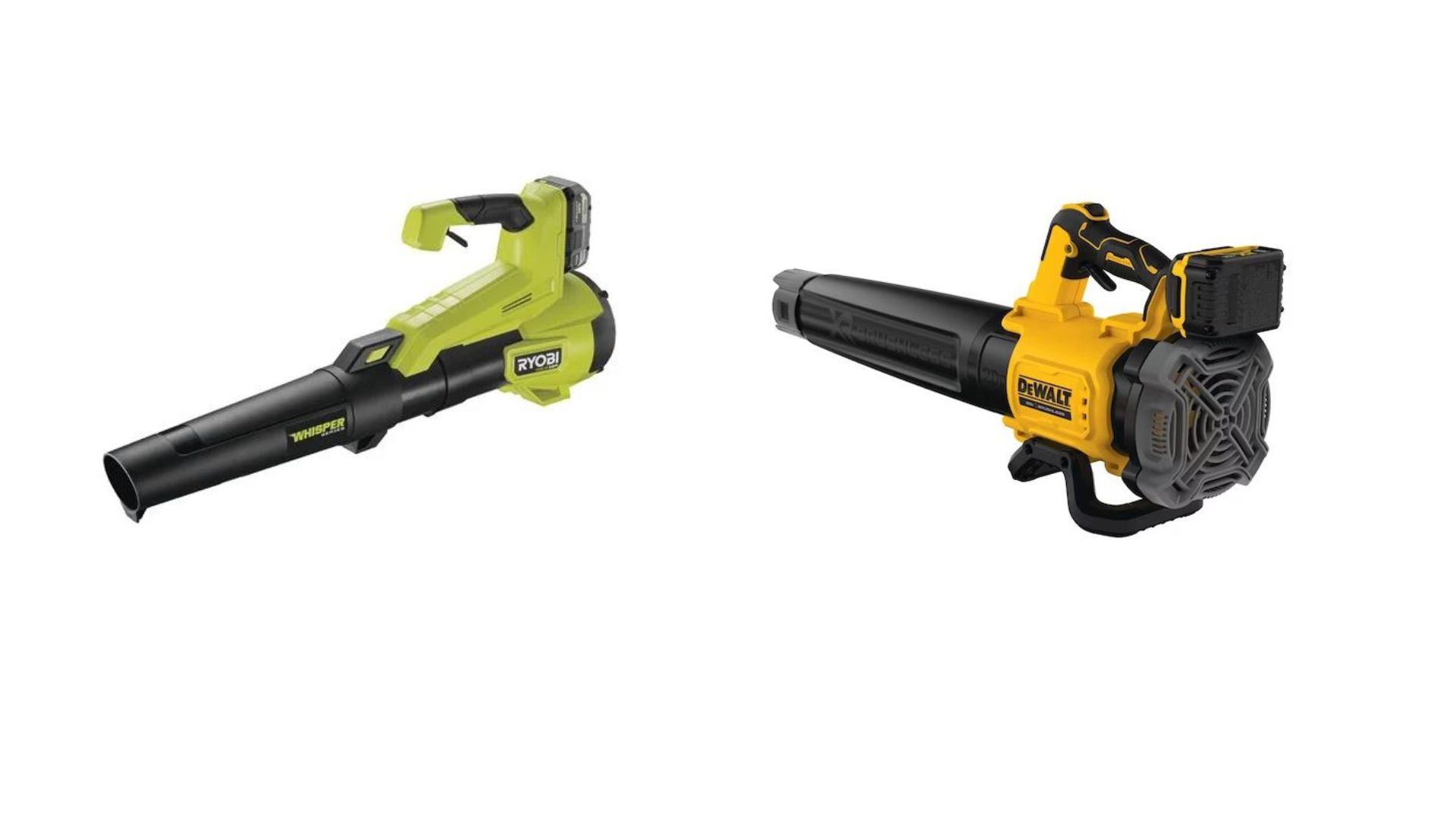
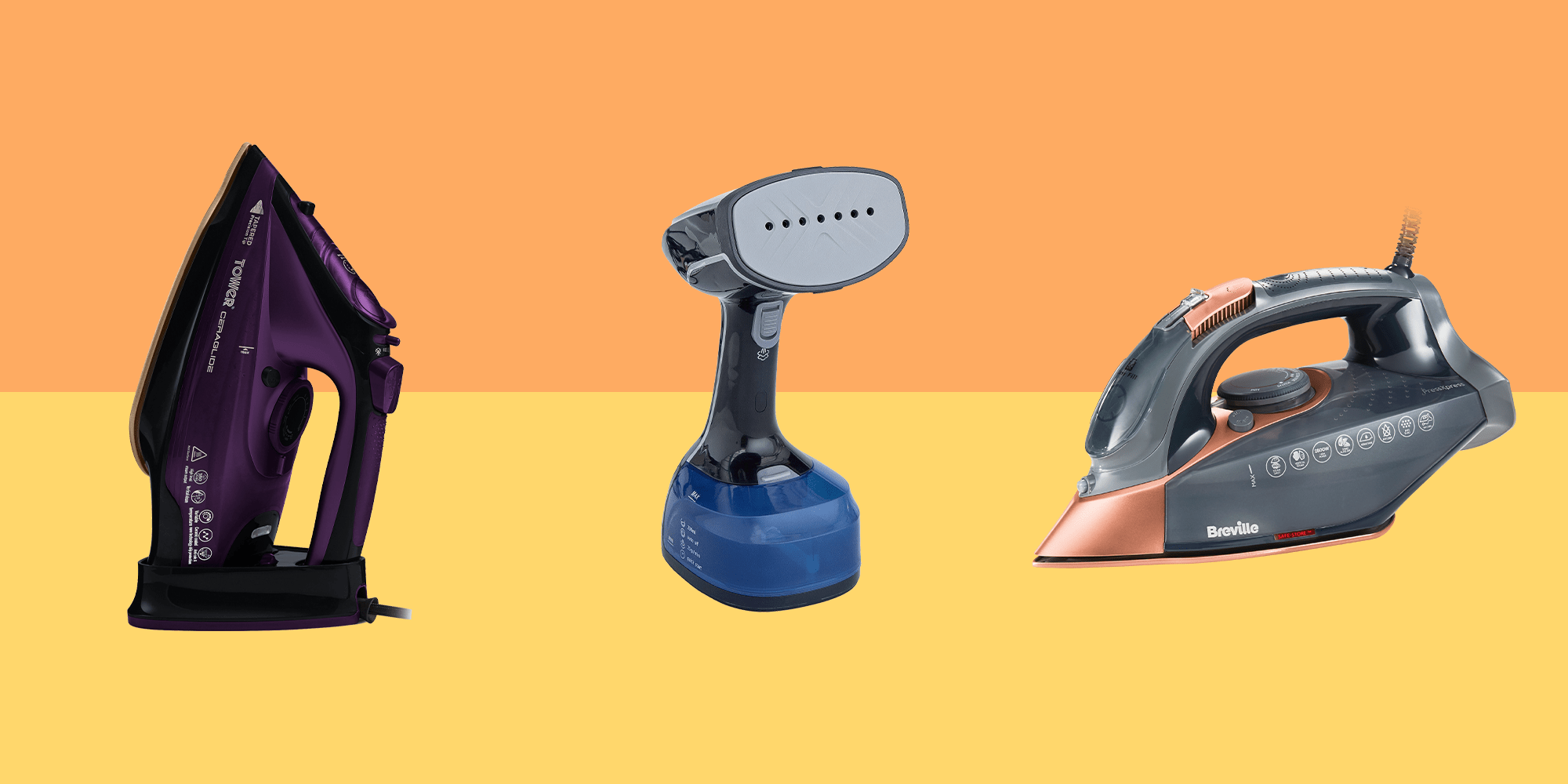

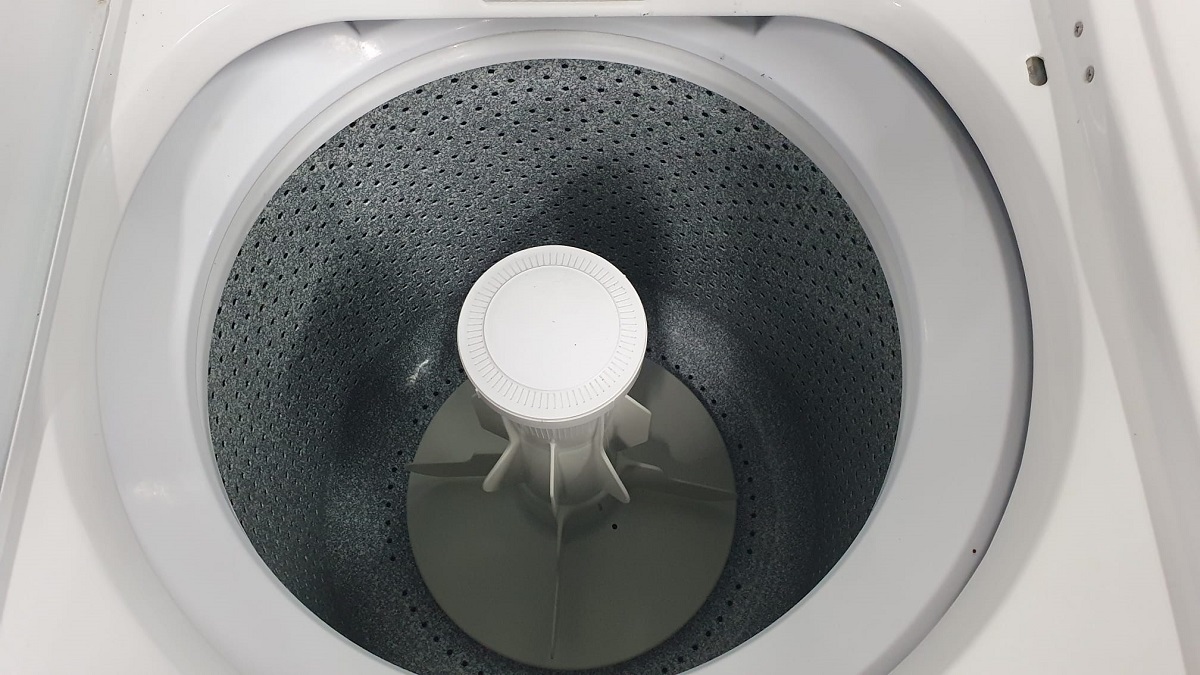
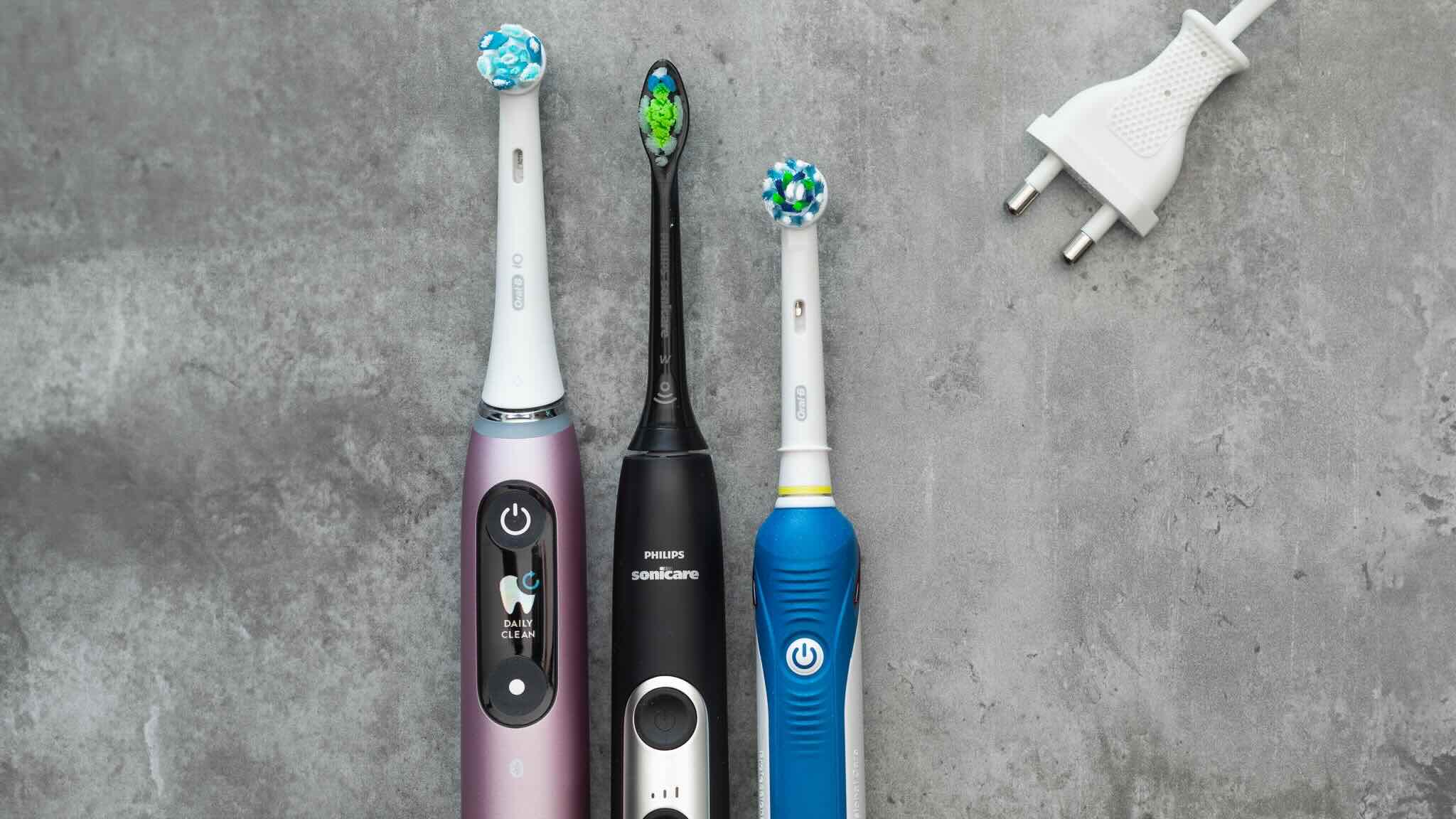



0 thoughts on “Which Washer Is Better Agitator Or Impeller”